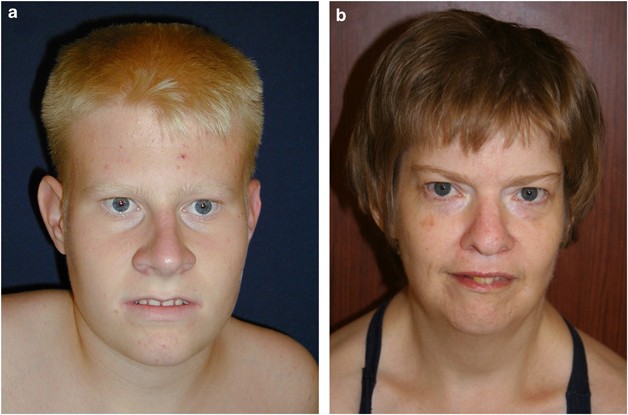
Image Source- Google
Prader-Willi Syndrome (PWS) is a complex genetic disorder that affects many aspects of an individual's life, including their behavior. Managing behavioral symptoms in individuals with PWS can present challenges, but with the right strategies and support, it is possible to improve their quality of life. In this article, we will explore various approaches to managing behavioral symptoms associated with Prader-Willi Syndrome.
Understanding Prader-Willi Syndrome
Before diving into strategies for managing behavioral symptoms of Prader-Willi Syndrome, it is essential to have a basic understanding of the syndrome itself. PWS is a rare genetic disorder that is present from birth and affects various aspects of a person's physical, mental, and behavioral health. Some common characteristics of PWS include:
- Feeding difficulties and insatiable hunger
- Low muscle tone and slow metabolism
- Intellectual disabilities and learning difficulties
- Behavioral challenges, such as stubbornness, temper outbursts, and obsessive-compulsive behaviors
Common Behavioral Symptoms of Prader-Willi Syndrome
Individuals with PWS can exhibit a wide range of behavioral symptoms that can impact their daily lives and interactions with others. Some common behavioral symptoms of Prader-Willi Syndrome include:
- Obsessive thoughts or behaviors related to food
- Difficulty managing emotions, leading to temper outbursts or mood swings
- Rigidity and stubbornness in routines or expectations
- Impulsivity and difficulty with impulse control
Strategies for Managing Behavioral Symptoms
While managing behavioral symptoms of PWS can be challenging, there are several strategies that can help individuals and their caregivers cope more effectively. Here are some approaches to consider:
Establishing Routine and Structure
Individuals with PWS often thrive in structured environments with predictable routines. Establishing a daily schedule that includes mealtimes, activities, and rest periods can help reduce anxiety and improve behavior. Some tips for creating a structured environment include:
- Use visual schedules or calendars to help individuals understand and anticipate daily activities
- Provide clear expectations and consistent consequences for behavior
- Encourage regular exercise and physical activity to promote a sense of routine
Addressing Food-Related Behaviors
One of the hallmark symptoms of PWS is an insatiable appetite and an obsession with food. Managing food-related behaviors is crucial for maintaining the individual's health and well-being. Some strategies for addressing food-related behaviors include:
- Keeping high-calorie or unhealthy foods out of the house to reduce temptation
- Using portion control and measuring out meals and snacks to prevent overeating
- Engaging in distraction techniques or activities when food cravings arise
Implementing Behavior Modification Techniques
Behavior modification techniques can be effective in managing challenging behaviors associated with PWS. These techniques focus on promoting positive behaviors through reinforcement and rewards. Some behavior modification strategies to consider include:
- Using a token economy system to reward desired behaviors with tokens that can be exchanged for privileges or rewards
- Providing praise and positive reinforcement for good behavior
- Implementing a behavior chart to track progress and celebrate successes
Seeking Professional Support
Managing behavioral symptoms of PWS may require the expertise of healthcare professionals, such as psychologists, behavior therapists, or developmental specialists. These professionals can provide guidance, support, and resources to help individuals with PWS and their caregivers navigate challenging behaviors. Some ways to seek professional support include:
- Consulting with a behavioral therapist or psychologist to develop a behavior management plan
- Participating in family therapy or support groups to connect with others facing similar challenges
- Seeking guidance from developmental specialists or educators to address learning and developmental needs
Conclusion
Managing behavioral symptoms of Prader-Willi Syndrome requires a comprehensive approach that addresses the unique challenges faced by individuals with this genetic disorder. By establishing routine and structure, addressing food-related behaviors, implementing behavior modification techniques, and seeking professional support, individuals with PWS and their caregivers can better manage behavioral symptoms and improve their quality of life. Remember, progress may be slow, but with patience, consistency, and support, positive changes can be achieved one step at a time.